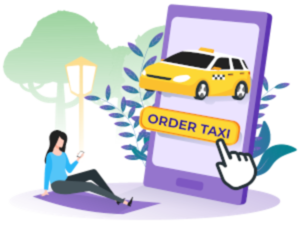
Blog: Include Gig Economy Income on Tax Returns
 The gig economy is also referred to as the on-demand, sharing, or access economy. People involved in the gig economy earn income as a freelancer, independent worker or employee. Typically, an online platform is used to connect people with potential or actual customers to provide goods or services. Examples include renting out a home or spare bedroom and providing meal delivery services or rides.
The gig economy is also referred to as the on-demand, sharing, or access economy. People involved in the gig economy earn income as a freelancer, independent worker or employee. Typically, an online platform is used to connect people with potential or actual customers to provide goods or services. Examples include renting out a home or spare bedroom and providing meal delivery services or rides.
During the pandemic, many people joined the ranks of the gig economy to help make ends meet. Whether you are part of the gig economy because it’s a primary source of income or want to make extra money with a side business, all taxpayers need to understand that they must report gig economy income on their tax return.
Here’s what you should know about the gig economy and your taxes:
1. Money earned through this work is usually taxable.
2. There are tax implications for both the company providing the platform and the individual performing the services.
3. This income is usually taxable even if:
- The taxpayer providing the service doesn’t receive an information return, like a Form 1099-NEC, Form 1099-MISC, Form 1099-K, or Form W-2.
- The activity is only part-time or side work.
- The taxpayer is paid in cash.
4. People working in the gig economy are generally required to pay:
- Income taxes.
- Federal Insurance Contribution Act or Self-employment Contribution Act tax.
- Additional Medicare taxes.
5. Independent contractors may be able to deduct business expenses. These taxpayers should double-check the rules around deducting expenses related to the use of things like their car or house. They should remember to keep records of their business expenses.
6. Special rules usually apply to rental property also used as a residence during the tax year. Taxpayers should remember that rental income is generally fully taxable.
7. Workers who do not have taxes withheld from their pay have two ways to pay their taxes in advance. Here are these two options:
- Gig economy workers who have another job where their employer withholds taxes from their paycheck can fill out and submit a new Form W-4. The employee does this to request that the other employer withholds additional taxes from their paycheck. This additional withholding can help cover the taxes owed from their gig economy work.
- The gig economy worker can make quarterly estimated tax payments. They do this to pay their taxes and any self-employment taxes owed throughout the year.



Engage us on Facebook
Follow us on Twitter
Tweets by @mymcmedia